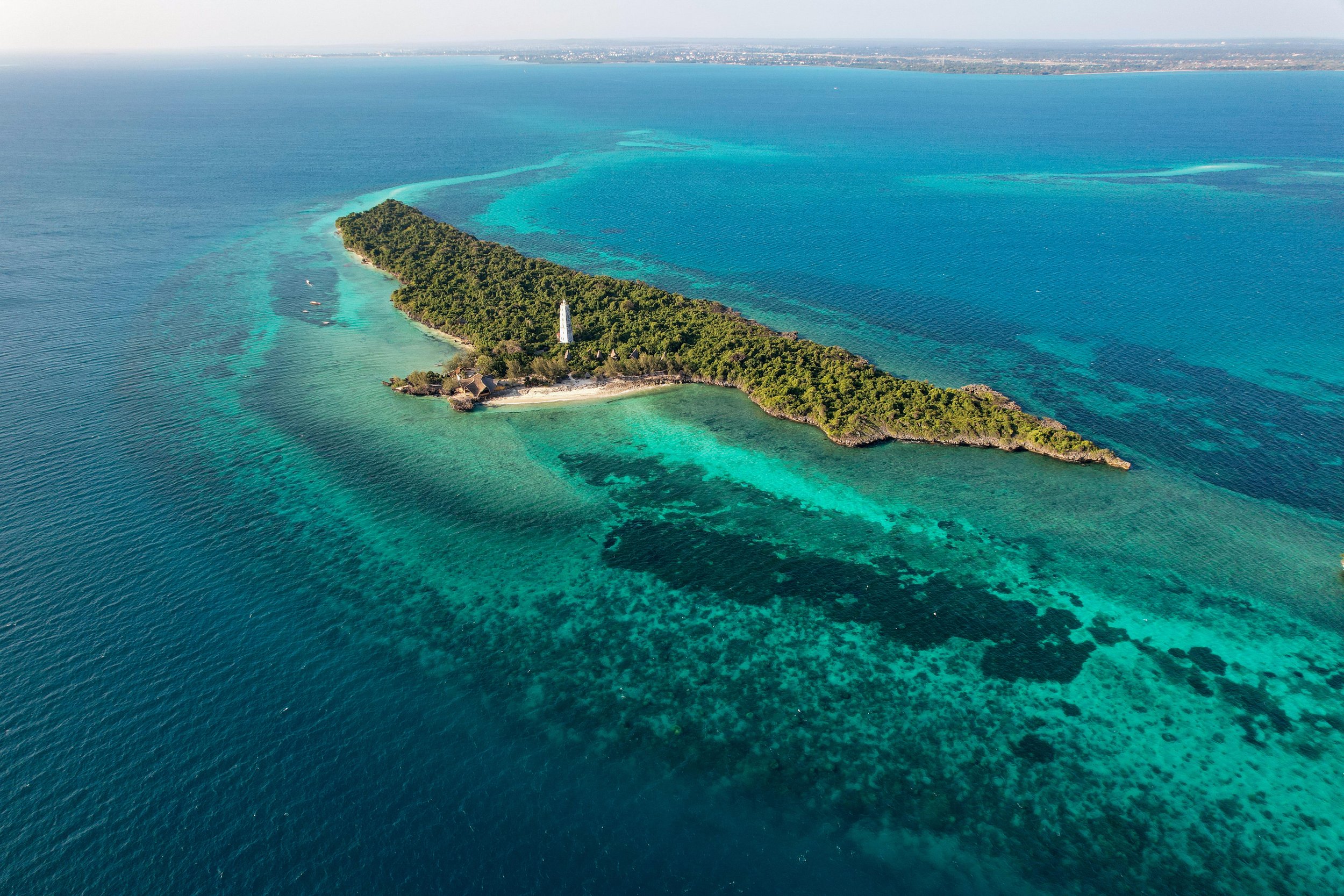Chumbe Island
Zanzibar, Tanzania

Chumbe Island
Marine Eco Lodges
since december 2011
Featuring a protected coral reef sanctuary, forest reserve, education centre, and state-of-the-art ecolodge, designed to have zero impact on the environment, Chumbe Island Coral Park (CHICOP) is not only a pioneer in biodiversity conservation and MPA management but also serves as a model for effective ecotourism as one of the top-ranked destinations in East Africa.
Chumbe Island Coral Park (CHICOP) is an award-winning private nature park eight miles southwest of Zanzibar, Tanzania. It was developed in 1991 when the formerly uninhabited Chumbe Island was recognised as one of the last pristine coral islands in the region. Besides the 81-acre coral reef, home to 90% of East Africa’s hard coral species and 500 reef fish species, rare wildlife is protected on and around the island. Overnight guests enjoy a private island experience, including activities such as snorkelling and forest and intertidal walks, combined with learning more about CHICOP's conservation and education efforts.



CONSERVATION
Chumbe's Coral Reef Sanctuary is accredited to the highest international science-based standards for biodiversity conservation and best management practices.
The protected forest reserve is home to 178 plant species. It is also a refuge for a variety of birds and other animals recognised by the IUCN Red List.
COMMUNITY
Environmental Education Programme for school children and their teachers, local fishing communities, the general public, and government authorities of all levels.
Over 97% of Chumbe's staff are from local communities and various research opportunities for local and international students and researchers.
CULTURE
Over 100-year-old monuments, such as a mosque and lighthouse, built by the British together with the Sultan of Zanzibar.
Local and fresh Zanzibari cuisine and a cookbook entitled "KITAMU" Kiswahili for "delicious" showcasing the variety of Zanzibari dishes prepared for visitors to Chumbe.
COMMERCE
All commercial activities are designed to support and provide sustainable funding for the conservation of Zanzibar's biodiversity and habitats.
Recognized by the UN Secretary General as a leading example of Payment for Ecosystem services.
Chumbe Island’s Highlights


















